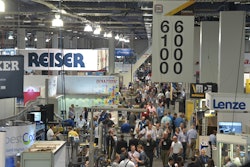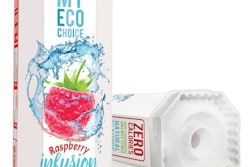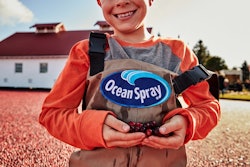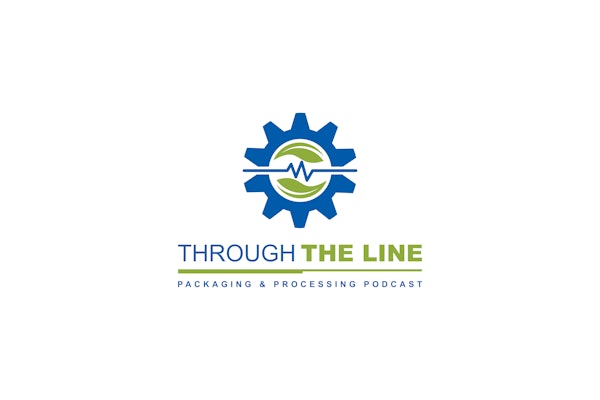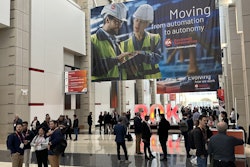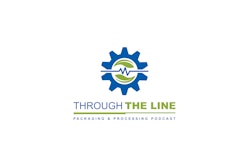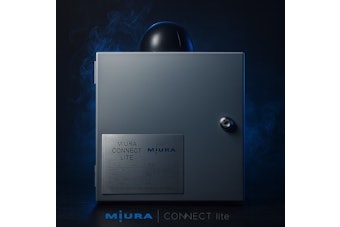On May 21 at the NYC offices of The World Economic Forum, Tom Szaky, founder of TerraCycle and Loop, officially kicked off the U.S. pilot program for Loop and announced that Kroger and Walgreens are the founding U.S. retail partners for the program. The milkman-style Loop circular shopping platform allows consumers to purchase products online in reusable packaging that is returned to Loop when the product is consumed. The program is now available in the Mid-Atlantic region of New York, New Jersey, Pennsylvania, Maryland and Washington, D.C.
The “star-studded” evening event was attended by luminaries from CPG partner companies as well as two literal stars — actor Adrian Grenier, whose dried snack company, International Harvest, is a Loop partner, and Jessica Alba, founder of The Honest Company, also a Loop partner, who sent in a video message.
In his opening speech, Szaky remarked on the unprecedented nature of the project, which evolved from an idea to an entire system comprising hundreds of new products and packaging within a span of just 24 months. “Just think about how long it usually takes to commercialize one product, let alone hundreds, both in Europe and the United States,” he said. “So it’s incredibly exciting to see the sheer energy that all the partners, large and small, have brought with them to make this all a reality.”
Through the current Loop supply chain, consumers purchase products online. With the addition of founding U.S. partners Kroger and Walgreens to the program, in the future, in-store purchase will possible as well. At the event, Jessica Adelman, Kroger VP of corporate affairs, and Lauren Brindley, Walgreens Group VP of beauty and personal care, shared how the results of the pilot will help their respective companies to better understand what consumers want and to design products and packaging for Loop that meet these needs.
“These innovative partnerships and being on the cutting edge enables us to understand what the consumer reaction to a product like Loop is, and how we can use our skills for good to make this an inevitable part of our economy,” said Adelman.
“The key thing here in the pilot is to understand how sustainable Loop really is. We’re trying to test and learn the customer reaction,” added Brindley. “Certainly the reason we wanted to get involved at Walgreens is because, quite honestly, customers are demanding this from us. They want to have different ways of accessing healthier and sustainable ways of living, and so it’s important that we bring those options to them.”
Key quotes from the event:
· Szaky: “Loop is an engine. It’s an engine for manufacturers to create durable alternatives for multi-use products. It’s also an engine for retailers to enable this to exist for consumers.”
· Grenier: “A lot of the work is the not-so-sexy stuff, the infrastructure stuff. It really needs to be done, because without the systems in place, consumers have to work too hard. So to make it really easy for consumers is the key.”
· Szaky: “What’s really exciting to me is the most powerful voice in the room is the individual consumer. Because in the end, what all organizations here are looking for is to figure out what the consumer wants and to give it to them in the best way possible, and maybe even figure out what they don’t yet know they want, and get it to them. That’s maybe the genius of it all.”
· Carolyn Tastad, P&G Group, president, North American global sales officer: “It’s going to take all of us working together to have the biggest impact and to make the most progress. …This is an opportunity for us to meet consumers where they are. Consumers are asking for these solutions. Sometimes they don’t know what they want. And this [the pilot] is a test to put multiple solutions in front of them.”
· Kim Peddle Rguem, President, ice cream division, Nestlé USA: “A lot of the products are superior experiences than what you’d get in a current single-use plastic format. And so, not only is Loop making this very convenient, but it’s also, if we can bring better experiences that will help consumers make these kinds of choices.”
· Tastad: “We are looking at packages that are made out of stainless, packages made out of glass, packages made out of plastic. We don’t know which one’s going to resonate the best, but we’re going to explore many alternatives, and we’re going to learn through this.”
· Jostein Solheim, VP of foods and refreshment, Unilever North America: “The one thing I’ve heard a lot about is scale. Obviously, what we don’t want to do is have cars driving around picking up single packages from your home and driving thousands of miles to get them cleaned. So, getting scale and efficiency of this system is at the core, which is why collaboration of competition is what’s going to crack it. And using technology and all the things we can do now to optimize these systems I really think is at the heart of it.”
· Emily Silver, VP of innovation and marketing capabilities at PepsiCo: “For us, it’s about learning and iteration, starting with Tropicana, which is an incredible brand for us. We oversee a massive brand portfolio, so part of it is driving scale and adding more and more to this program as we iterate.”
· Szaky: “The goal here is convenience. And this is exactly why we have retail partners, because retailers know how to do this way better than anyone else on this stage actually. That is the entire goal, to embed into existing supply chains and the people who already know what they are doing.”
· Adelman: “We have experience as a reverse logistics provider already. In the Kroger vestibule, we have a collection bin where single-use plastic bags can be returned to the store. Those are now going into Trex decking, for example. So we have found outlets and usage to create that virtuous cycle to be able to precipitate this basically. So we’re there as an enabling platform to collect and help this circular economy relation thrive.”
· Rguem: “The product has to be pristine in the experience, or this whole thing will fall apart, right? If you have a bad experience, you’re not going to reuse and repurchase. And so that [cleaning the packaging] has been our priority one.”
· Christine Todd Whitman, president of The Whitman Group, former administrator of the EPA, and the first female governor of New Jersey: “What you want to do is ensure that the regulators understand the benefits. The EPA will never endorse a particular product, but they will say this is a process that we looked at and this is good for the environment, and it’s up on their website. And that does have an impact. And then it also will help your thinking on regulations—on regulating other packaging that’s causing problems, perhaps.”
· Whitman: “There are a lot of different ways that public policy will come into it, but again, that comes back to us as the consumer encouraging them, saying this is something we want to see. We want to see more of this. We want to see them enable. We want to see people being encouraged to use it and not put up any roadblocks that we so often see put up with both regulation and tax policy.”




